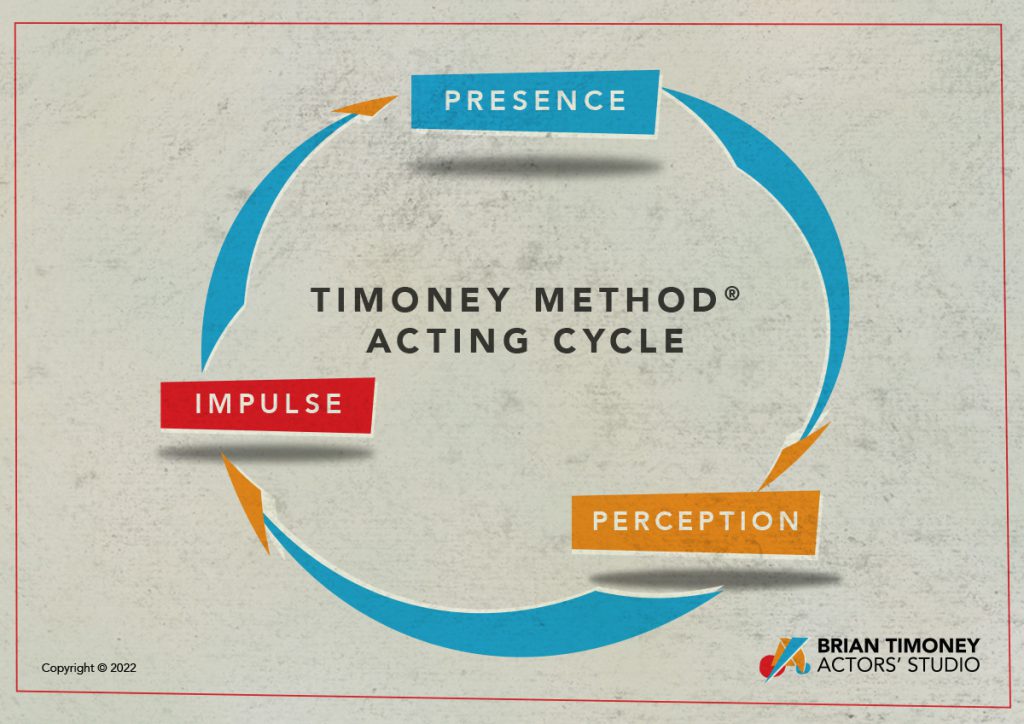Timoney Method Acting Cycle

It’s important to understand as an actor that certain essential activities need to occur for high-quality acting to occur.
Over the years, I have distilled my process down to a cycle.
The first activity is achieving presence.
If the actor is thinking about themselves and their needs and wants, they are not present. It’s very easy for this to happen as the actor is often under a lot of pressure when performing. They may be performing in front of a large audience and start to think about how the audience will receive their work. Or even worse, a critic could be in who gave them a bad review in the past, and they start to dwell on that.
I remember Al Pacino being interviewed once about his experience on The Godfather, which wasn’t a good one for him. The film studio didn’t want him to play the role, but the director did and fought for him to be in the film. When they started filming, there were people on set who were against him being cast and would literally snigger at the end of takes. This was hurtful and a potential distraction, but because Al is a well-trained method actor, he had the tools and techniques to overcome this and keep in the moment.
So, you see, it could be easy for the actor to become overwhelmed and lose all presence.
You may have heard the term stage presence; often, this is seen as some God-given talent when, in fact, it’s a learnable skill.
The next stage is perception.
When an actor successfully enters into a character’s thoughts, they begin to perceive everything around them as the character would. They use their own sensory capabilities to see, hear, touch, smell and taste, which are then fused with imaginary perception.
It’s important that the actor can completely immerse themself in the character so that they can perceive everything and anything as the character, not just the lines they have to say. We know, as human beings, we are constantly thinking, not just when we are in a situation where we have to speak. This ability to perceive accurately is key to entering the character’s mind and justifying their behaviours.
The final stage is impluse. We often think that physical action is an impulse which it is, but so is speaking. The desire to say something is also an impluse. The actor sometimes forgets this because they have a script and think they should get on with it and say the lines. But this never happens in real life; there is no script in real life, so we speak when we have thought.
More:
The physical impulse to do something is based upon having a psychological thought. If there is no real thought, the action will be inauthentic. So it’s key that the actor understands how impulses arise and can take them.
This cycle is something that I work on with my students. Each part of the cycle is an essential skill that must be executed repeatedly until it becomes second nature.


